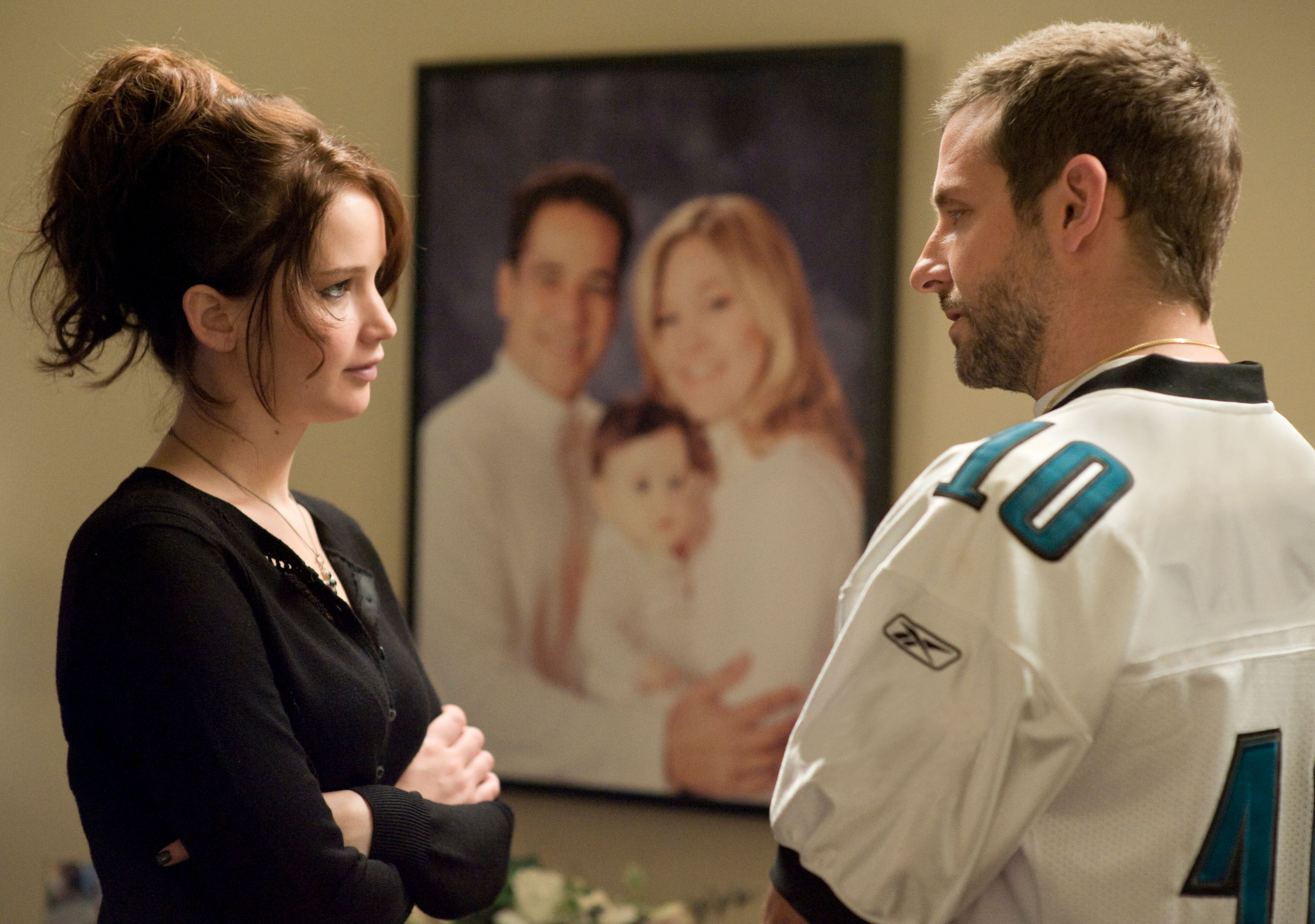It's been almost 10 years since the original release of Silver Linings Playbook, and the considerate depictions of mental illness are still just as relevant today. The film follows Patrizio (Pat), sensitively portrayed by Bradley Cooper, as he looks to lead a normal life despite his struggles with bipolar disorder. When recently rewatching the 2012 film, I found myself connecting with the storyline much more than I had upon my first viewing. That's because since then, I have been given my own diagnosis of bipolar disorder.
When the mental health condition was first mentioned in the movie, I was skeptical, and felt nervous to see how it was portrayed. Bipolar is a condition which is often misunderstood, and so a Hollywood version of it was either going to be hugely enlightening, or a poor misrepresentation. Fortunately, I found it to be the former. Through sensitive storytelling and brilliant acting, Silver Linings Playbook accurately showed many of the ways I feel, and in turn, made me feel represented in a lonely world.
To demonstrate this feeling of being seen, and to keep this important conversation going, I feel it's important for me to share my story. After multiple stints of therapy, different concoctions of medication, and various other diagnoses, I was given a diagnosis of bipolar disorder in 2021. Of course, this didn't change who I am or how the people around me see me, but what it did was provide an explanation. I know now why my mind can be racing one minute and feel numb the next. I know now why I can feel bursting with energy and ideas, only to suddenly feel aimless. The mania and the depression couldn't feel any more different from each other, and the polar opposite feelings can be a huge source of frustration, but finally having an understanding of why it happens was a huge relief. The scariest part for me was realizing how little was commonly known about the disorder, and how I would have to explain it every time somebody asked me about it. Then I watched Silver Linings, and felt relieved that an accurate depiction of bipolar is out there.
Cooper's portrayal of Pat encapsulates multiple different feelings associated with the condition, and personally, I found the most effective and accurate one is the mania. One particular scene stands out for me. After finishing reading his book, Ernest Hemingway's A Farewell to Arms, Pat becomes visibly shaken and wakes up his parents at 4 a.m. to discuss his thoughts. What's striking in this scene is the verbal flurry that comes from Pat as he tries to empty the racing thoughts in his brain. This is a feeling I know all too well. The frustrations are insignificant, and it can be hard to imagine having thoughts so strong about a book that you can't wait until the morning to air them. But this happens. A minor thought can spiral and wind up until it can no longer be contained, and all of a sudden what was once a small opinion now feels like a matter of urgency. What captured the moment so well in the movie was the pacing of Pat, and his inability to slow down. It's clear that the film's creators had some insight into what these moments can feel like, something I'll touch on later.
It's not just the physical actions that made me feel represented in this film, it's the story, and in particular, the ending. Despite the struggles faced by Pat throughout his life, and the issues faced by his eventual love interest, Tiffany (Jennifer Lawrence), the story ends by showing us that a normal life can be lived by anyone. Mental illness can wreak havoc on somebody's day-to-day life, as I've felt personally, but there is no reason to give it the power to control your life. That's a message I took from Silver Linings. It was more than your typical happy ever after conclusion, it was a signal of hope to those struggling. Pat and Tiffany both experienced previous loves, job losses, various traumas, and of course their mental health battles, but they never gave up. Their story is proof to anybody feeling lost, that you can be found.
As previously mentioned, there are elements in the film which point towards the creator's having a real insight into what problems can be caused by bipolar disorder. Director and screenplay writer of the film, David O. Russell has witnessed himself how the condition can affect somebody's life. Speaking to Huffington Post, Russell explained how his son "has struggled with bi-polarity and OCD." Based on the accurate representations of the emotions associated with bipolar disorder throughout the whole film, this comes as no surprise. This fact makes Russell a perfect choice for the film, as his experiences, combined with his stellar film-making abilities, allow for a sensitive portrayal of something which may otherwise have been depicted carelessly.
Silver Linings Playbook was hugely successful, and was nominated for a total of eight Academy Awards, with Lawrence winning the Best Actress Oscar for her performance. For me though, it's the storytelling combined with sharp, empathetic acting that made the film a success in my eyes. Sometimes, there is more to a film than its awards and its critical response. The most important feature of a film can often be how it relates to its audience. Sure, not everyone watching the movie is in my position and can relate its tender subjects, but everyone can learn from it. The film is as educational as it is entertaining, and I hope for those who have seen it, something can be learned. Bipolar disorder may be a lot more common than you think, and everybody who is experiencing it is living their own unique version of the condition. Not everybody will feel the same way Pat does, but the parallels can be drawn. I have my own personal set of circumstances and experiences, but the similarities in the character traits of Cooper's character, truly made me feel represented.




